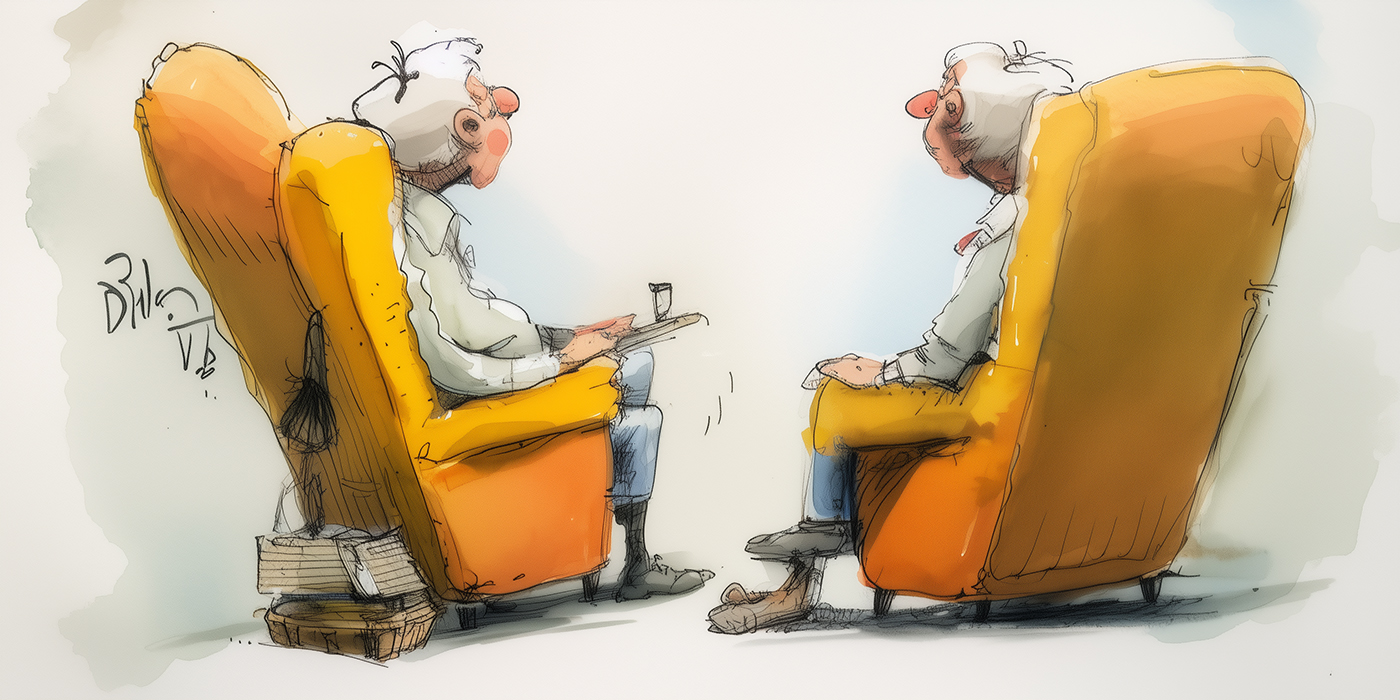Essay interviewed old-timer Mike C., Chicago, Illinois, USA
Hi Mike, thanks for your time today in sharing your experience, strength and hope. Could we begin by asking your sobriety date and home group?
Yes, June 3, 1984 and the Holy Innocents group in Chicago. For a long time previously it was at St. Teresa. We have been on Zoom for about a year now; when we were face to face, attendance was around 55-60 and we meet for 90 minutes.
Can you briefly describe what life was like before SA?
In my teens I became addicted to porn and masturbation. I was hooked from the very beginning and while I could often stop, I couldn’t stay stopped. I grew up in a large Irish family where this subject wasn’t talked about; there was a real silence around it. My older brother had the problem too and I would look at his porn magazines. It wasn’t something we discussed but I knew where to look. I began to study for the priesthood and was 10 years in the seminary system. The values were great but I couldn’t live up to them; I recall once borrowing a priest’s car to visit a pornographic book store. My brother got involved in recovery with SAA and I joined him. I was angry the first six months that I had to be there, but stayed for over two years. The fellowship was good but I found myself asking “Is there something better?” In particular, I felt the need for something stronger around how to define sobriety and in 1986 I joined SA.
Can you recall events around your own spiritual awakening?
I remember I was working as a sales rep and travelling to make a call. I stopped at a café for something to eat and noticed an adult book store across the road. My heart was racing with the thought of going in. But I remembered something my sponsor had told me—“call me before you act out.” I rang him then and he told me to pay the bill, go home, call him and tell him that I was still sober. This I was able to do—it was an important moment of surrender for me.
Mike, can you select a few things of prime importance that have helped you stay sober over 36 years now?
Early on, it was basic things like looking at the sidewalk to avoid lust triggers and only looking up when I really had to. I don’t have to do that so much today but can still do it. Also, avoiding nudity etc. in movies and taking a different route to avoid going past adult book stores. If my wife was driving, and I needed to, I would just close my eyes. Taking directions from my sponsor was very important as was total honesty and transparency. We can want to look good, e.g. come up with the perfect comment at a meeting. But I’ve learned I need to share the very thing I don’t want to talk about. I’m as sick as my secrets.
What motivates you to serve today and which areas have you particularly enjoyed?
I love this Fellowship and have helped out with organizing conferences in Chicago, speaking at conventions and sponsoring others; currently I have around 10-12 sponsees. I also coordinate twelve guys in Chicago who write letters to members in prison.
We understand you have been very involved with others in building a culture of sobriety in your home group when it was at St. Teresa’s. How did that start and can you list some of the changes and initiatives that were made?
We started realizing we were unconsciously enabling relapse in the group; we were good at support but not so good at challenging others. Changes included things like only having someone with good sobriety give the closing prayer. Previously, we would ask someone who had had, e.g., the most dramatic relapse that week! We also started asking only people with over 30 days sobriety to speak in the first round of sharing. These measures aroused some controversy at first; some said people were being made to feel bad or were being shamed. But I think most of the shame we feel is from our own behaviors. If we want to experience self-esteem, do something esteemable.
We felt it was important that no one leave the meeting without a sponsor (unless they wanted to). We would walk up to people after the meeting and ask if they had a sponsor and did they want one. We also decided to embrace the idea of group sponsorship. With particularly difficult problems, a sponsee could meet with a small group of sober members outside of the meeting. At a sponsorship workshop we identified that we had been strong and clear with newcomers but had become complacent about challenging longer term sober members and turned that around.
At newcomer meetings, we usually read Step Zero or Step One from the White Book and we all shared from our own experience. Some larger meetings have special breakout sessions for newcomers, but we felt it important for the newcomer to stay in the meeting, not take them outside it. We wanted them to experience the culture and hear the shares. We wanted newcomers, and all members, to know we loved them, not their behaviors. And particularly with newcomers, we wanted them to walk out saying “These guys really mean business!”
We had an emphasis on Traditions 1 (unity) and 5 (carrying the message)— what was the message of our group. Was it clearly sobriety and recovery?
Thanks Mike. Before leaving meetings, do you have any thoughts on what constitutes a strong Zoom meeting?
Yes, we had someone tell us recently that while on the Zoom meeting they were working and trying to be part of the meeting at the same time. We had a group conscience and decided that to respect the meeting we should treat it as if it were face to face. No working, no exercising, just focus on the meeting.
What about the idea of some people zooming in to a face to face meeting, not uncommon today?
We’re still on Zoom only, so I haven’t tried this. I have mixed feelings on it. For me, it would depend to what degree the in-person experience was diluted by the technology. One other thing about face to face meetings, we ask that cell phones be not just turned off but out of sight.
Any tips for any of us who may be struggling to get or stay sober?
I have been given the gift of sobriety. And if I can stay sober, anyone can. But we need to stick at it. We have to get to where we are sick and tired of acting out and be prepared to listen to someone else’s ideas.
Thanks again for your time Mike. Can we finish by asking how you relax and enjoy down time?
I enjoy playing baseball (with a mask at the moment), reading history, being active in my church and being a mentor in a big-brother group. With the SA fellowship, it’s fun to meet for something to eat and we would regularly meet at a Porta Rican restaurant before the meeting.
Thank you very much for sharing your experience, strength and hope, Mike.
Mike C., Illinois, USA






